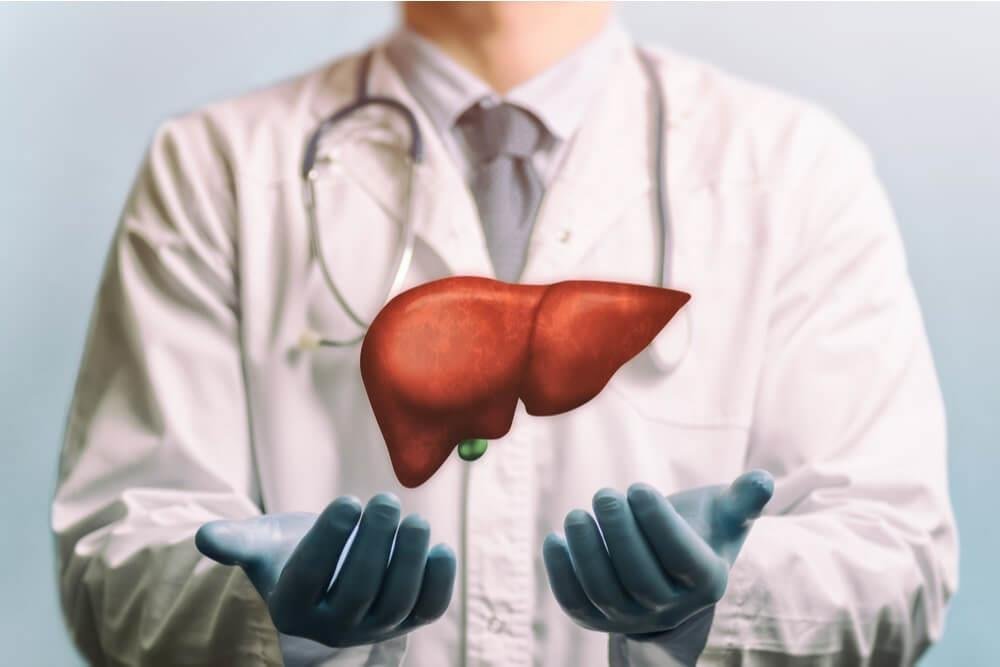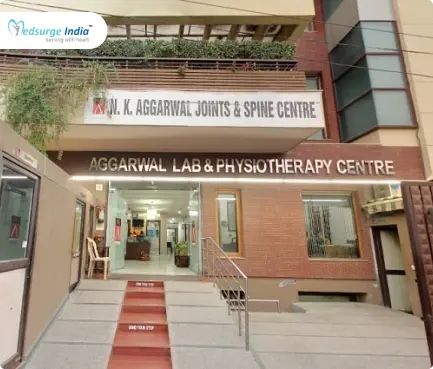
Acute liver failure is defined as the loss of liver function that occurs suddenly within days or weeks in a person who does not have any prior liver disease. A hepatitis virus or medicines like acetaminophen are the most common causes. Acute liver failure is rarer than chronic liver failure, which takes longer to develop. Acute liver failure, often called fulminant hepatic failure can lead to significant complications such as excessive bleeding and increasing pressure in the brain. It’s a medical emergency that requires hospitalization. Acute liver failure can occasionally be treated and reversed, depending on the cause. However, in many cases, a liver transplant may be the only option. Nausea, loss of appetite, and blood in the stool are some of the symptoms.
What Is Liver Failure?
The liver is the body’s second-largest organ. It performs several different functions. Everything you eat and drink is processed by your liver, which produces energy and nutrients for your body to use. It helps your body fight infection by filtering out toxic compounds from your blood, such as alcohol.
Your liver can be damaged by viruses or hazardous chemicals. If your liver is damaged you may get a liver failure, also known as a hepatic failure. The liver may eventually stop functioning properly in individuals who have liver disease.
Liver failure is a life-threatening condition. If you develop liver failure, receive treatment as soon as possible. There are two types of liver failure:
Acute Liver Failure: Acute liver failure is a rare condition. It occurs when your liver suddenly stops functioning and shows no symptoms. This frequently occurs after an overdose of medication or poisoning.
Chronic Liver Failure: Chronic liver failure develops more slowly than acute liver failure. Symptoms may not appear for months or even years.
When good liver tissue is replaced by scar tissue, Liver cirrhosis will develop. It is a common cause of chronic liver failure. According to research, cirrhosis is most commonly caused by hepatitis C infection, excessive alcohol consumption, or nonalcoholic fatty liver disease (NAFLD).
Your liver gets inflamed as a result of chronic liver failure. Over time, this inflammation leads to the creation of scar tissue. Your liver eventually loses its normal range of function as your body replaces healthy tissue with scar tissue.
What Are the Symptoms of Acute Liver Failure?
It takes years for liver failure to manifest. The symptoms of liver failure often look like symptoms of other medical conditions, making it difficult to diagnose in its early stages. As your liver continues to deteriorate, your symptoms will worsen.
Chronic liver failure, also known as long-term liver failure, can result in the following symptoms:
- Fatigue
- Nausea
- Loss of Appetite
- Diarrhea
- Blood in vomiting
- stool with blood in it
As liver failure advances, symptoms become more severe. In later stages, symptoms of liver failure may include:
- Jaundice (yellowing of the skin and eyes)
- Extreme exhaustion
- Disorientation (confusion and uncertainty)
- In the belly and extremities, there is an accumulation of fluid (arms and legs)
Acute liver failure is a condition in which the liver fails suddenly. The following are some of the symptoms that people with acute liver failure may experience:
- Bleeding
- Alterations in mental status
- Breath odor (musty or sweet)
- Problems with movement
- Appetite loss.
- A general feeling of being unwell
- Jaundice
What Are the Causes of Acute Liver Failure?
Acute liver failure can be caused by a variety of factors. Acetaminophen is a common pain reliever that can have an adverse effect on the liver’s function. This might happen if a child is given the wrong dose of medicine or if they are given too much medicine in a short period of time.
Other causes of acute liver failure are:
- Metabolic conditions (problems with the physical and chemical processes inside the liver that must happen for a person to live)
- Viruses and infections
- Immunological deficiency
- Cardiovascular problems (which cause a lack of blood supply to the liver)
- Cancer
- Certain herbal supplements
The causes of acute liver failure in infants are the following:
- Infections
- Drug/Toxins
- Cardiovascular
- Metabolic disease
- Immune Disorder
Hepatitis B and C, non-alcoholic fatty liver disease, alcohol addiction, and hemochromatosis are also a few of the diseases and disorders that cause liver failure.
Complications
Acute liver failure frequently results in complications, such as:
- Excessive fluid in the brain (cerebral edema)
- Bleeding disorders
- Infections
- Kidney failure
Acute Liver Failure Treatment Cost in India
Acute Liver Failure Treatment Cost in India starts from Rs. 17 Lakh (21000 USD). In India, the price of an acute liver failure treatment might vary significantly based on a number of variables. It’s crucial to remember that this is only an estimate and that the final cost may differ.
Acute liver failure treatment Cost in Different Cities in India:
| Cities | Starting Price |
| Delhi | Rs. 18 Lakh (21,650 USD) |
| Gurgaon | Rs. 17 Lakh (21,000 USD) |
| Noida | Rs. 16 Lakh (19,200 USD) |
| Mumbai | Rs. 17 Lakh (21,000 USD) |
| Hyderabad | Rs. 16 Lakh (19,200 USD) |
| Chennai | Rs. 18 Lakh (21,650 USD) |
| Kolkata | Rs. 16 Lakh (19,200 USD) |
| Bangalore | Rs. 18 Lakh (21,650 USD) |
Note: Please be aware that the costs listed are only an indication of what the treatment will cost initially and may change depending on a number of variables.
Factors That Can Affect Acute Liver Failure Treatment Cost in India
The standard and excellence of medical treatment and amenities are comparable to those of the most prominent healthcare facilities in the world, even after deducting the cost of lodging, meals, and transportation. Following here are some variables that can affect Acute Liver Failure Treatment Cost in India:
- Medication costs.
- Duration of treatment.
- Geographical location.
- Hospitalization expenses.
- Government policies and subsidies.
- Medical tourism packages.
- Hospital reputation and infrastructure.
- The expertise and experience of medical professionals.
- The type and frequency of diagnostic procedures.
- The choice of treatment modality.
The most affordable Acute Liver Failure Treatment Cost in India is offered to patients worldwide by Medsurge India, under the supervision of highly qualified medical professionals.
How Is Acute Liver Failure is Diagnosed?
Consult your doctor if you are experiencing any symptoms. If you have a history of alcohol abuse, genetic abnormalities, or other medical concerns, be sure to inform them.
The doctor diagnoses liver failure based on your symptoms, medical history, and test results (blood tests, urine tests, abdominal imaging).
Your doctor may prescribe medication to reverse the effects of drug poisoning, such as acetaminophen poisoning. If you have internal bleeding, your doctor may prescribe medication to stop it.
A biopsy is a frequent diagnostic for determining the extent of liver damage. A liver biopsy is a procedure in which your doctor removes a small bit of your liver to be evaluated in a lab.
If detected earlier enough, some liver damage can be reversed. The liver that has been injured may be able to heal itself. Medication might help in the healing process as well.
If you are overweight or eat a high-fat diet, you are more likely to get fatty liver disease. Making a lifestyle change, such as switching to a better diet, may be beneficial. If you have a liver impairment and consume alcohol, you must eliminate alcohol from your diet.
Get Free Cost Estimation
Procedure
Acute Liver Failure Treatment in India
Acute Liver Failure Treatment in India is treated by liver transplant doctors who are experts and have rich experience and knowledge in transplant surgeries. For patients, a multidisciplinary team of skilled experts and nurses who speak English provides comprehensive treatment.
Hepatologists are doctors who specialize in treating liver disease and liver failure.
Treatment of liver failure in India depends on whether it is acute or chronic. For chronic liver failure, treatment includes changes to the diet and lifestyle, including:
- Avoid alcoholic beverages and drugs that are known to be harmful to the liver.
- Certain items, such as red meat, cheese, and eggs, should be consumed in lesser quantities.
- Weight loss and the management of metabolic risk factors such as hypertension and diabetes
- Eliminating salt from one’s diet is a good idea (including not adding salt to food)
Treatment for acute liver failure in India includes:
- Medications such as laxatives or enemas to help flush toxins (poisons) out; Intravenous (IV) fluids to maintain blood pressure;
- Blood glucose (sugar) monitoring; if blood sugar decreases, glucose is given to the patient.
- If you are bleeding heavily, you may need a blood transfusion or a breathing tube to help you breathe.
- A liver transplant may be recommended in both acute and chronic liver failure. Before transplantation, doctors thoroughly screen transplant patients to make sure a new organ might help them before placing them on organ waiting lists.
A healthy liver from a living or deceased donor replaces a damaged or diseased organ during Liver transplant surgery in India. Because the liver can regenerate, or grow back. Many of your body’s organs might be affected by liver failure. Infection, electrolyte deficiency, and bleeding are all possible consequences of acute liver failure. Both acute and chronic liver failure can lead to mortality if they are not treated.
The treatment for acute and chronic liver treatment in India is more affordable than in any other western country.
How Acute Liver Failure can be Prevented?
You can lower your risk of developing liver failure by doing the following:
- Getting a hepatitis B vaccine
- Limiting your alcohol consumption
- Keeping a healthy weight and leading an active lifestyle
- When taking acetaminophen (Tylenol®), follow the guidelines carefully.
- Have a physical checkup with a primary care practitioner at least once a year, including screening for obesity, high cholesterol, high blood pressure, and diabetes.
Conclusion
If you have any indications of liver failure, you should consult your doctor. Symptoms such as jaundice, bowel changes, and accidental weight loss may be present.
You might not develop liver failure, but if you do, it’s critical to catch it early. Because you may not notice symptoms until it’s too late, liver failure can be a silent killer. You can control liver disease and live a healthy life with the right treatment.
Acute liver failure in children is a very rare occurrence. The likelihood of the child recovering is mostly determined by the cause and their age. Recovery is also influenced by the stage of the disease and the extent of the brain injury. When the liver cures itself, the patient usually recovers completely.
The Most Important Frequently Asked Questions
Q: What Is the Most Common Cause of Acute Liver Failure?
A: The majority of cases of abrupt liver failure are caused by taking too much acetaminophen. Acetaminophen is a pain reliever that can be found in a wide range of over-the-counter and prescription medications. Acute liver failure might also be caused by other factors.
Q: Is Liver Failure Painful?
A: Cirrhosis can be incredibly painful, especially as the disease progresses. Cirrhosis patients describe pain in up to 82 percent of cases, and more than half of these people believe their agony lasts a long time (chronic). Abdominal pain is a common symptom of liver disease.
Q: What Is It Like to Be in the Final Stages of Liver Failure?
A: The individual may be unable to distinguish between night and day. He or she may also exhibit irritation and personality shifts, as well as memory issues. As his or her brain function deteriorates, he or she will become tired and confused. Unresponsiveness and unconsciousness can result from this condition.
Q: Is It Possible for a Liver to Recover Itself?
A: The liver is extremely robust and capable of self-regeneration. Some liver cells die each time your liver filters alcohol. The liver can regenerate new cells, but long-term alcohol abuse (drinking too much) can impair its ability to do so.
Q: Is It Possible to Recover from Liver Failure?
A: With treatment, many people can recover from liver failure. If a transplant is required, most patients are able to resume normal activities within six months. Transplant recipients require ongoing medical care, including drugs to keep their bodies from rejecting the new organ.
Top Hospitals for Acute Liver Failure Treatment in India
Top Doctors for Hepatology
Dr. Dinesh Jothimani
Director
Experience: 18 years of experience
Dr. Rela Institute and Medical Centre, Chennai
Chennai, India
Dr. Samir Shah
Head of Department , DM, MD, Fellowship, MBBS
Experience: 33 years of experience
Mumbai , India

















































